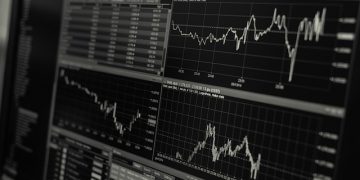(Reuters) – Most Middle East stock markets ended lower on Sunday, with financials weighing on the Dubai index, while Saudi extended gains for a seventh consecutive session on rising oil prices.
Oil, a key catalyst for the Gulf’s financial markets, hit its highest levels in more than a year on Friday on hopes a U.S. stimulus will boost the economy and fuel demand.
Brent crude settled up $1.29, or 2.1%, at $62.43 a barrel by 1832 GMT after rising to a session high of $62.83, the highest since Jan. 22, 2020.
Saudi Arabia’s benchmark index advanced 1%, boosted by a 4.4% surge in Al Rajhi Bank and a 4.2% rise in Saudi Arabian Mining Company.
Dubai’s main share index dropped 0.4%, weighed down by a 5% fall in Mashreq Bank and a 0.4% decrease in Emirates NBD Bank.
Elsewhere, Dubai developer DAMAC Properties closed 1.6% lower after it reported a steep loss for 2020 as sales shrank during the coronavirus pandemic.
In Abu Dhabi, the index closed flat, as losses in financial shares were offset by gains in property stocks including Aldar Properties, which climbed 1.6%.
After trading hours, Abu Dhabi’s largest property developer Aldar reported fourth-quarter net profit of 729 million dirhams ($198 million), a 28% rise on the same quarter a year earlier.
The Qatari index was down 0.1%, after a 0.7% fall in Qatar Islamic Bank
Outside the Gulf, Egypt’s blue-chip index lost 0.3%, with its largest lender Commercial International Bank Egypt down 0.6%.
Reporting by Ateeq Shariff in Bengaluru; Editing by Alexander Smith




